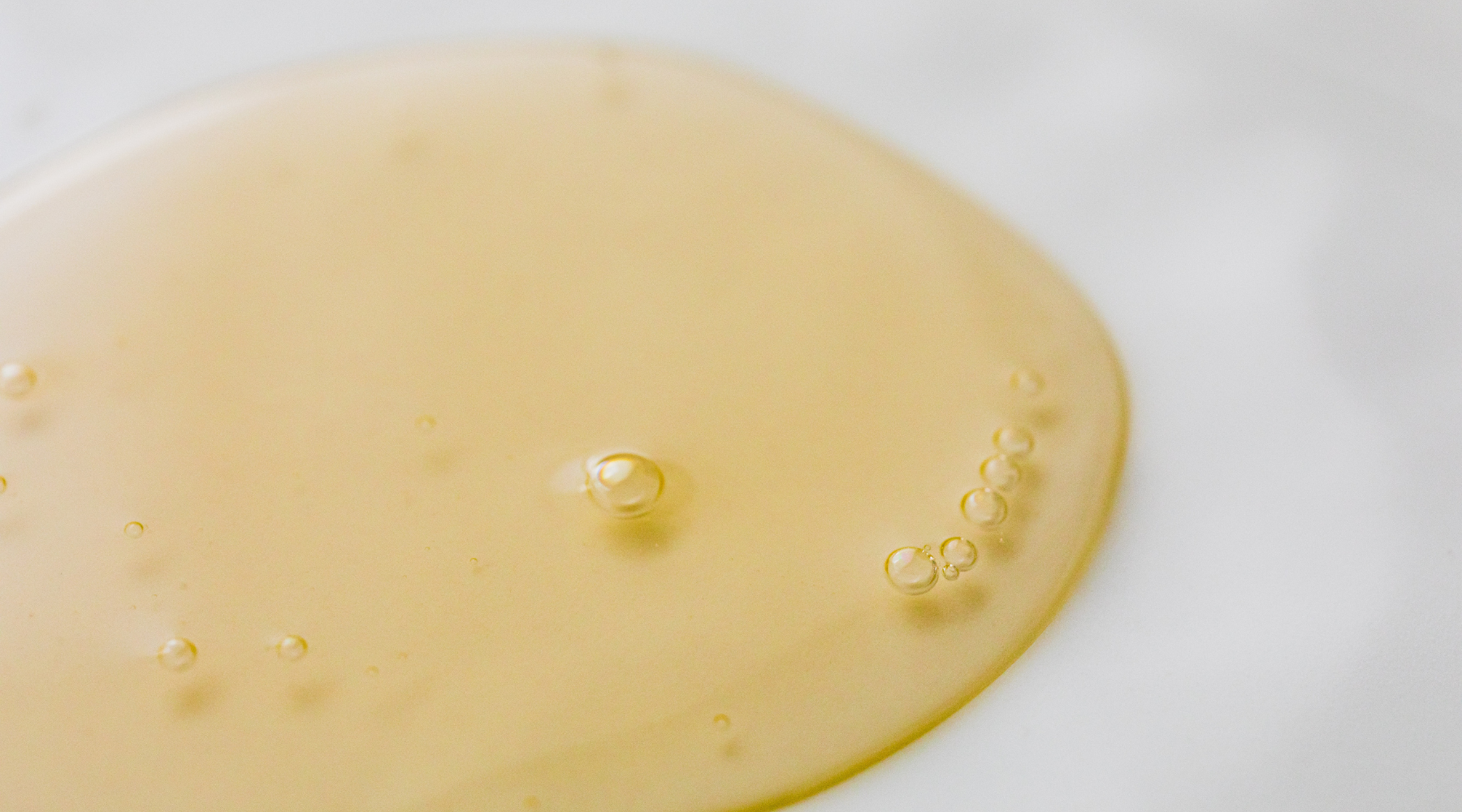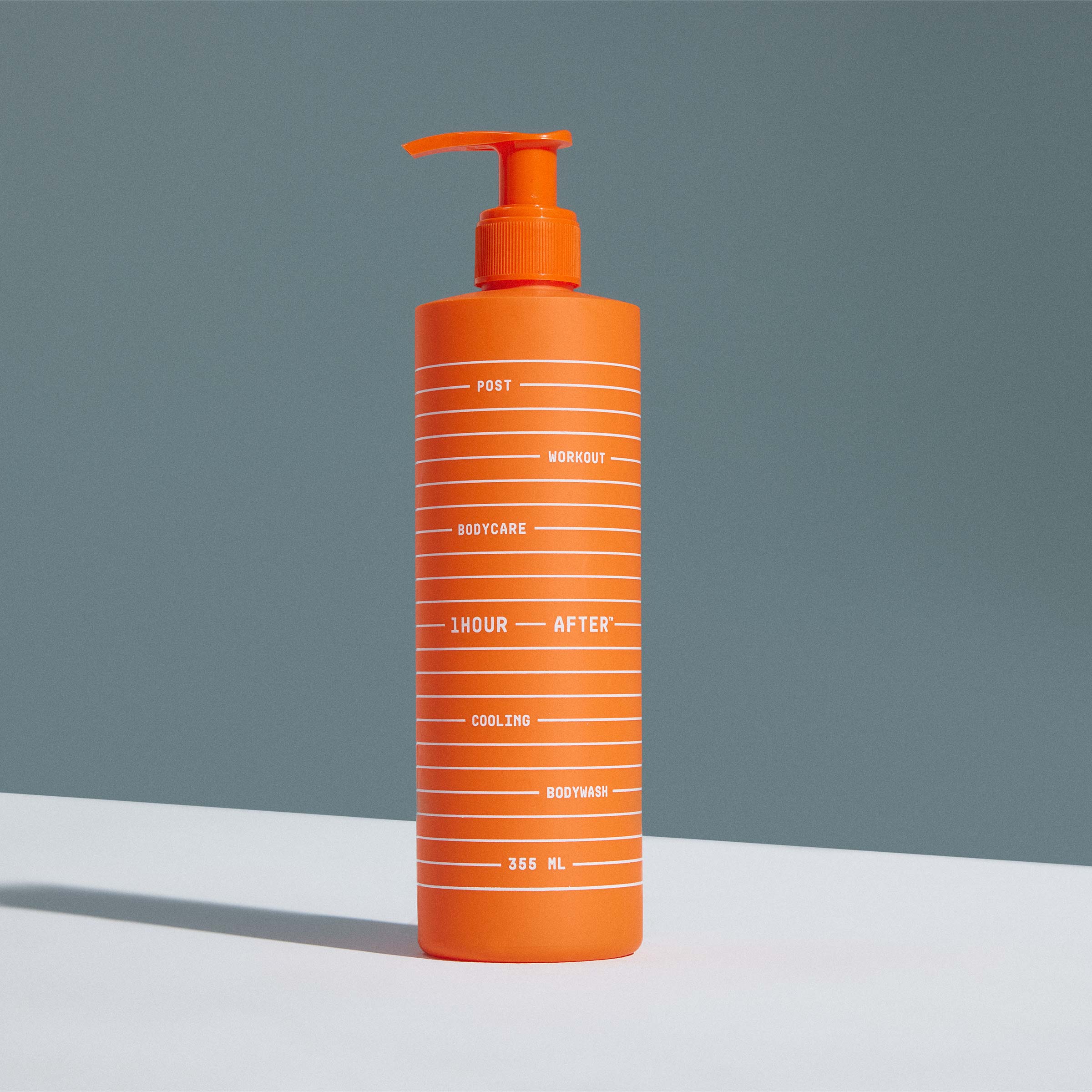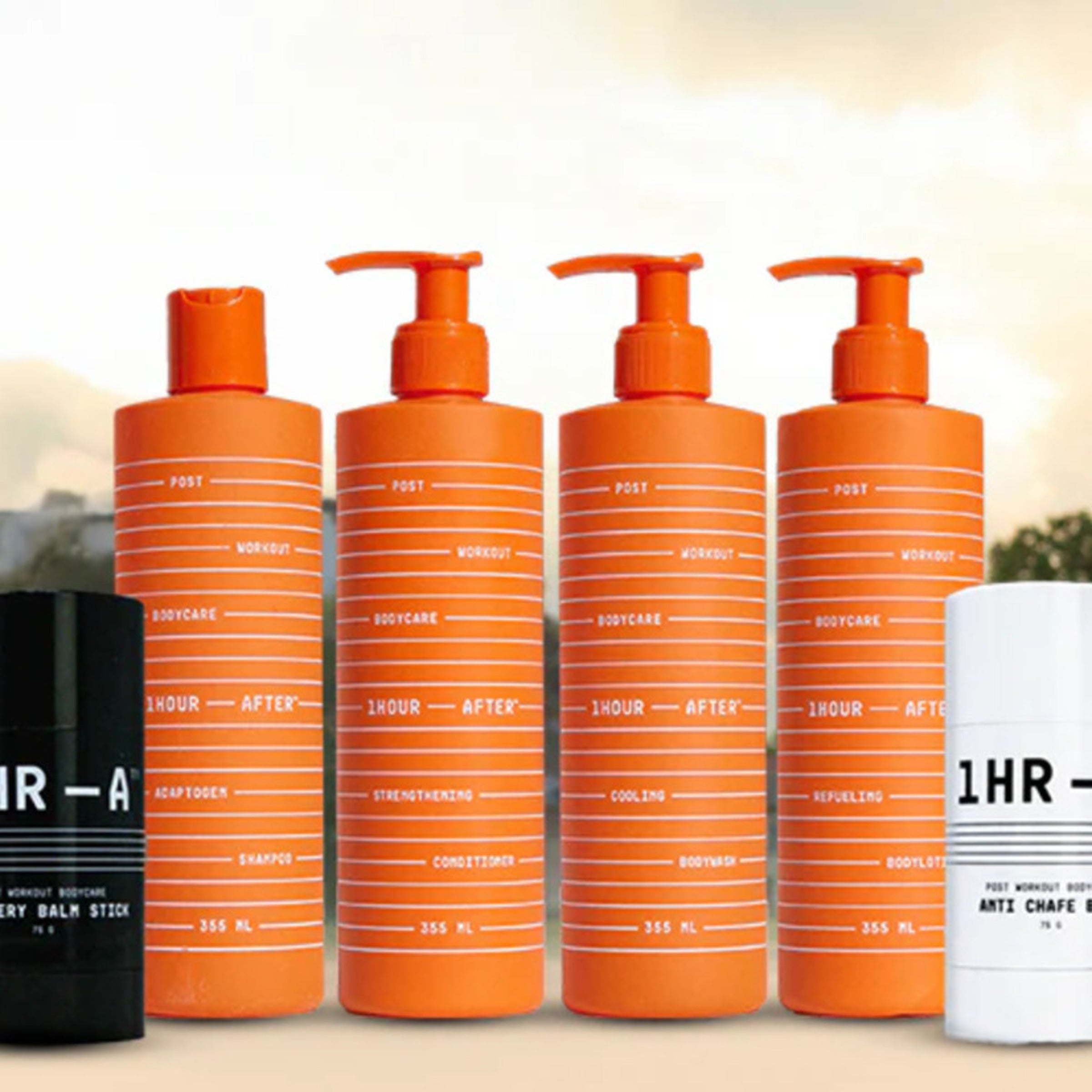
Does Menthol Help Muscle Recovery? Discover the Power of Post-Workout Super Ingredients.
Table of Contents
For athletes and fitness enthusiasts, muscle recovery is a crucial part of any exercise regimen in achieving optimal performance. Whether you're a seasoned athlete or someone who exercises regularly, you need to understand the importance of post-workout care. During recovery, the body repairs and strengthens muscles, preparing you for your next workout. Companies in the body care industry are developing various products to speed up recovery and ease discomfort, with menthol gaining popularity as a critical ingredient. Menthol, known for its cooling and soothing effects, has become a key ingredient in topical products that relieve muscle soreness and discomfort. These products include creams, gels, body washes, lotions, patches, and sprays.
But does menthol help muscle recovery? In this article, we'll dive into the science behind menthol, explore how it works, and examine whether it genuinely has the power to enhance post-workout recovery. Along the way, we'll discuss how to incorporate menthol into your body care routine to achieve faster relief and better overall muscle recovery.

What Is Menthol?
Menthol is a naturally occurring organic compound derived from the essential oils of plants like peppermint, corn mint, and other varieties of mint. It can also be synthesized in laboratories to mimic the properties of the natural compound. Menthol, known for its refreshing aroma and cooling sensation, has been used for centuries in traditional medicine to treat various ailments, such as muscle aches, headaches, and respiratory issues, thanks to its analgesic (pain-relieving) and anti-inflammatory effects.
Today, menthol has become a common ingredient in many over-the-counter personal care products, particularly in topical and transdermal formulations such as menthol balms, gels, sprays, creams, and patches. Its ability to provide rapid cooling when applied to the skin makes it a popular option for relieving muscle pain and soreness, especially after intense exercise.
The Science Behind Menthol’s Cooling Effect
Menthol's ability to cool the skin isn't just a trick on your senses — there's actual science behind it. When applied topically, menthol interacts with sensory receptors in the skin called TRPM8 receptors, which respond to cold stimuli. This interaction produces a cooling sensation without actually lowering the skin's temperature.
Menthol's cooling effect is more than just a temporary sensation. It can help alleviate pain and discomfort by interfering with transmitting pain signals to the brain, which is particularly beneficial for muscle soreness after an intense workout. Additionally, menthol may have a mild anti-inflammatory effect, which could help reduce swelling and speed up the healing process.
But while menthol offers an immediate feeling of relief, does it go beyond just masking the pain and contribute to muscle recovery? Let’s look at what research says.
Does Menthol Help Muscle Recovery? The Research
The primary benefit of menthol for muscle recovery is its ability to provide temporary pain relief, particularly for muscle soreness, often known as Delayed Onset Muscle Soreness (DOMS). DOMS is a common outcome of intense physical activity, usually affecting athletes, weightlifters, and recreational fitness enthusiasts. This soreness can last several days, making it difficult to continue training or perform daily activities.
Using menthol-infused products for DOMS can help alleviate muscle pain by creating a cooling sensation that temporarily numbs the affected area. By reducing the perception of soreness, menthol allows athletes to stay active and recover faster.
Pain Relief and Menthol
Research shows that menthol works by triggering cold receptors in the skin, helping to relieve pain and support muscle recovery. A 2012 study published by the National Center for Biotechnology Information (NCBI) on PubMed Central (PMC) confirmed menthol’s ability to relieve post-exercise muscle soreness temporarily.
Menthol and Muscle Function
While menthol can help alleviate pain, it’s important to note that it doesn't directly accelerate muscle repair. Studies indicate that its primary role in muscle recovery is related to its analgesic properties, which reduce discomfort and allow athletes to continue moving and exercising, indirectly supporting recovery. Break it up into:
Menthol and Inflammation
One of the underlying causes of muscle soreness is inflammation, which occurs due to small tears in muscle fibres. While menthol's cooling sensation is effective for pain relief, its impact on inflammation is unclear. Some studies suggest that menthol may have a mild anti-inflammatory effect, but more research is needed to determine whether it can significantly reduce muscle inflammation after exercise.
In the meantime, menthol’s cooling effect can help soothe the burning sensation often associated with inflammation, providing temporary relief and allowing for more comfortable movement during the recovery period.

Menthol: A Super Ingredient for Post-Workout Recovery Products
Menthol acts as a cooling agent by interacting with cold receptors in the skin, creating a cooling effect without lowering the actual temperature. This feature makes it a powerful ingredient for combatting post-exercise heat stress. Heat stress, which results from increased body temperature during strenuous activity, can accelerate fatigue and decrease performance. Menthol can counteract these effects by cooling the skin and soothing inflamed muscles.
Menthol is also known for its penetration-enhancing properties. When used in topical products, menthol interacts with skin lipids, altering their fluidity and thickness. As a result, the skin becomes more permeable, allowing beneficial ingredients like anti-inflammatory agents such as zinc or magnesium to penetrate deeper tissues more effectively. This property makes menthol a popular choice to combine with other active ingredients, such as eucalyptus oil, to create effective post-workout treatments that aid in pain relief, muscle relaxation, and improved mobility, making it a key ingredient in athletic recovery products.
Benefits of Menthol for Muscle Recovery
1. Rapid Pain Relief
Menthol significantly lowers pain perception, helping to alleviate post-workout soreness more effectively.
2. Improved Mobility
Menthol can help you maintain physical activity and increase mobility by reducing the discomfort associated with DOMS. It allows you to stretch and move more freely, promoting blood flow and preventing recovery stiffness.
3. Quick Onset of Action
One of menthol’s lesser-known but equally important benefits is its ability to boost the effectiveness of other active ingredients (like magnesium or zinc) in topical recovery products for athletes, resulting in faster pain relief.
4. Soothing Sensation
Menthol offers a nonthermal pleasant cooling effect that can be mentally and physically soothing. It helps alleviate heat stress and tension after a challenging workout, enhancing recovery and performance.
5. Versatility
Menthol can be integrated into various body care recovery products, making it a flexible option for diverse needs and preferences. Its adaptability allows for easy incorporation into any athletic recovery regimen, providing effective relief in multiple forms.
Note: While menthol provides immediate relief, incorporating it into your recovery routine may also have long-term benefits. Regular use of menthol-infused products could improve muscle recovery by enhancing blood flow and reducing inflammation.
Boost Your Recovery with Menthol: Here's How!
If you want to enhance your muscle recovery routine with the power of menthol, there are various ways to incorporate this cooling compound into your post-workout care. Here are a few popular methods:
1. Menthol Body Wash
One effective way to incorporate menthol into your recovery routine is through a cooling menthol body wash. Use this body wash before and after workouts to cleanse and refresh tired muscles, providing immediate relief. The cooling sensation from menthol helps reduce soreness and inflammation, making it a perfect option after intense workouts. As the menthol activates cold receptors in the skin, it provides a soothing effect that promotes recovery. For enhanced benefits, you can use 1Hour-After refuelling magnesium body lotion or muscle roll-on balm after showering with menthol cooling body wash for additional muscle relief.
2. Topical Creams and Gels
One of the best ways to utilize menthol for muscle recovery is through topical creams and gels, like a muscle recovery balm. These products are applied directly to sore or achy muscles, delivering a cooling sensation and fast relief from soreness and discomfort. Look for products that combine menthol with additional recovery-boosting ingredients like camphor, arnica, or magnesium. These added components can enhance the effectiveness, helping reduce inflammation and support quicker recovery after a strenuous workout.
3. Transdermal Patches
Menthol-infused transdermal patches offer a convenient, long-lasting option for targeted pain relief. These adhesive patches are applied directly to the skin over sore muscles, releasing menthol gradually over several hours. This method provides continuous relief during the day, especially when moving.
4. Menthol-Infused Garments and Wraps
Menthol’s versatility allows you to soak it into garments or wraps, providing consistent, long-lasting muscle relief. When combined with compression therapy, menthol-infused wraps enhance the penetration of active ingredients, delivering sustained pain relief and aiding in recovery on the go.
5. Cold Therapy Combined with Menthol
Pairing menthol with cold therapy can amplify the cooling effect and provide even more significant relief. Cold therapy, such as ice packs or cold compresses, often reduces swelling and inflammation after an intense workout. Adding a menthol-based balm, cream, or gel before applying cold therapy can enhance the overall cooling sensation and pain relief.
6. Menthol and Eucalyptus Oil for Warm-Up
When combined with eucalyptus oil, menthol is helpful in a warm-up routine. Eucalyptus oil's warming effect balances menthol’s cooling properties, making it a great addition to pre-workout massages or topical applications. This combination helps prepare the muscles by altering thermal sensations and increasing circulation before physical activity.
7. Bath Soaks with Menthol
Soaking in a warm bath infused with menthol can be a relaxing and effective way to soothe sore muscles. Menthol bath salts or essential oils can be added to the water to create a calming environment that promotes muscle relaxation. The combination of warm water and menthol helps to ease tension, reduce pain, and enhance the body's natural recovery processes.
8. Post-Workout Massage
A post-workout massage using a menthol-infused oil or lotion can further boost muscle recovery. The massage helps to increase blood flow, reduce muscle tension, and promote relaxation, while the menthol provides additional pain relief and cooling. For best results, consider using a menthol or zinc-infused magnesium body lotion, as magnesium plays a crucial role in muscle relaxation and recovery.

Other Ingredients That Complement Menthol
While menthol is powerful, combining it with other ingredients can take your recovery to the next level. Here are a few ingredients that work particularly well with menthol:
1. Magnesium
Magnesium is an essential mineral for muscle function and recovery. It plays a crucial role in muscle relaxation, making it an integral component of post-workout care. Thanks to menthol's penetration-enhancing properties, magnesium can penetrate deeper into muscles when combined with menthol. This helps reduce muscle cramps and promotes relaxation after intense exercise.
2. Eucalyptus Oil
Eucalyptus oil is often combined with menthol in post-workout products due to its anti-inflammatory and pain-relieving effects. The cooling sensation of menthol, paired with the warming properties of eucalyptus, creates a balanced thermal sensation that helps soothe sore muscles. This combination can warm up muscles before a workout and cool them down afterward.
3. Camphor
Camphor is another natural compound known for relieving pain and reducing inflammation. Like menthol, camphor produces a cooling sensation and is often used in topical analgesics. When combined, menthol and camphor can provide more robust, long-lasting relief from muscle soreness and joint pain.
Conclusion: Is Menthol Effective for Muscle Recovery?
So, does menthol help muscle recovery? The short answer is YES — menthol can be an effective ingredient in pre- and post-workout body care products for managing post-workout pain and soreness, thanks to its cooling and analgesic properties. While menthol may not directly speed up the muscle repair process, it is crucial in alleviating pain, improving mobility, and enhancing overall comfort during recovery.
Incorporating menthol into your post-workout routine can offer quick, effective relief from muscle soreness, helping you stay active and progress toward your fitness goals. Whether you opt for a menthol body wash, balm, cream, patch, or bath soak, this cooling compound provides powerful support for recovery after intense exercise. Its versatility and proven benefits make menthol a must-have super ingredient for any athlete’s post-workout care routine, ensuring you can recover faster and more comfortably after each session.
Consider opting for menthol-infused body care recovery products in your next post-workout care session and experience firsthand how they can help you recover more comfortably and effectively.
- Choosing a selection results in a full page refresh.
- Press the space key then arrow keys to make a selection.




